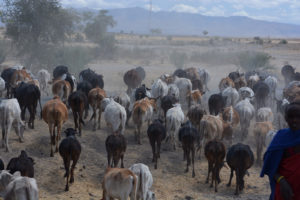My foolish act, passing an anguished mother along a roadside so I could make a preaching appointment, kept me stuck in long-term remorse.
For years I periodically revisited in my mind’s eye the awful scene. Each time, left sorrowing, self-detesting, grieved.
I had been given, at my own hand, a teaching moment of a severe kind. Any hearing the term good Samaritan thereafter drew a self-inflicted stab. If I had been a character in Jesus’s famous parable that Sunday morning, I was anything but the generous passerby readily lending aid. I was one of the other guys, the Levi, the Priest. Preoccupied. Dutifully religious. Hurrying to my assigned post.
Over time I gleaned insights – and healing – through my reflections as I learned to bring them, along with their pain, openly to God.
Interior questions got verbalized in one way or other. How could I have done it? What drove me to shirk responsibility? How can a string of roadway tragedies witnessed over time so desensitize a man to human suffering?
The hardest question to resolve went unspoken, even unformed. It lay churning within, begging a response. Do I find closure? Do I forgive myself?
In time the dark voice of self-loathing quieted enough that I caught a whispered message, a merciful intervention, surprisingly tender in tone. God’s voice.
I found that he had whispered it all along, but that had drowned the gentle voice by my own self-accusing chorus. His response to my inquiries came themselves as questions. Something after this fashion.
Was my mercy withheld from my servant-king who defiled a man’s wife then murdered him to cover his wrong?
Was not my friend who three times in succession disowned me not afterward commissioned as my trusted emissary?
Have not innumerable followers who have offended, failed and invited shame been welcomed, embraced and celebrated as was the prodigal of my long-ago parable?
He gently pressed on.
Were the negligent priest and Levite on Jericho’s roadway valued less by me than the assaulted man? And you, my son, does your worthiness trace to your own virtue, to your forever choosing rightly when testing comes? Does your goodness qualify your worth? Did my sacrifice at Golgatha prove adequate for the sins of all except for yours – are you the lone exception?
Through the questionings, and further whisperings, healing had entered.
The tragic roadway picture reemerges occasionally. But between me, that scene and a myriad others spotlighting my frailties, stands another image – of a cross-marked hilltop outside a middle eastern town.
I taste the nectar of deliverance and offer the one response I can, “Praise you, Praise you, Lord”.
©2017 Jerry Lout



